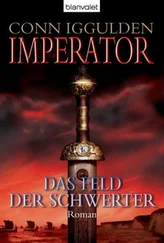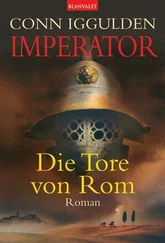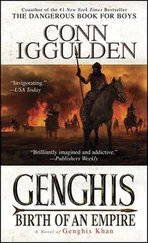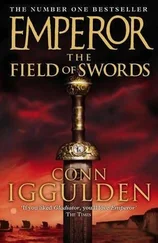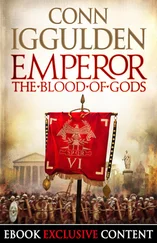Conn Iggulden - Empire of Silver
Здесь есть возможность читать онлайн «Conn Iggulden - Empire of Silver» — ознакомительный отрывок электронной книги совершенно бесплатно, а после прочтения отрывка купить полную версию. В некоторых случаях можно слушать аудио, скачать через торрент в формате fb2 и присутствует краткое содержание. Жанр: Фэнтези, на английском языке. Описание произведения, (предисловие) а так же отзывы посетителей доступны на портале библиотеки ЛибКат.
- Название:Empire of Silver
- Автор:
- Жанр:
- Год:неизвестен
- ISBN:нет данных
- Рейтинг книги:5 / 5. Голосов: 1
-
Избранное:Добавить в избранное
- Отзывы:
-
Ваша оценка:
- 100
- 1
- 2
- 3
- 4
- 5
Empire of Silver: краткое содержание, описание и аннотация
Предлагаем к чтению аннотацию, описание, краткое содержание или предисловие (зависит от того, что написал сам автор книги «Empire of Silver»). Если вы не нашли необходимую информацию о книге — напишите в комментариях, мы постараемся отыскать её.
Empire of Silver — читать онлайн ознакомительный отрывок
Ниже представлен текст книги, разбитый по страницам. Система сохранения места последней прочитанной страницы, позволяет с удобством читать онлайн бесплатно книгу «Empire of Silver», без необходимости каждый раз заново искать на чём Вы остановились. Поставьте закладку, и сможете в любой момент перейти на страницу, на которой закончили чтение.
Интервал:
Закладка:
As the Secret History records, Tolui took poison rather than die by the blade, but I changed his ending. The bloody sacrifice of animals was part of the attempt to save Ogedai and the two events seemed to fit together. His son Mongke was certainly present, though no exchange is recorded between them. A quick note on the subject of distances: By Ogedai's time, a network of way stations had been set up wherever Mongol influence extended. Set 25 miles apart on major roads, they were well furnished. With regular changes of horses, an urgent message could be taken 100 miles in a day, if necessary by the same man. The riders wore belts of bells, so the way stations could hear them coming and have water, food and a fresh mount waiting. A thousand miles in ten days was not just possible, but commonplace. Such lines of communication made the armies of the khans modern in a sense that no other force of the century could manage.
The shaman Mohrol is fictional, though of course the khan would have had diviners and shamans. In Mongolia, it remains the case that an extra finger will mean a child is 'chosen' to be a shaman. They do not hunt or fish and are supported by the tribes to be magic- and medicine-workers as well as keepers of history and tradition. They are men of power still. The ancient Buddhas of Bamiyan in Afghanistan did exist. One was around 114 feet high, the other 165 feet. They were dynamited by the Islamic Taliban in 2001. There are still legends of a third, 'sleeping Buddha' in the hills there. Tsubodai's campaign against the west lasted from around 1232 to 1241. Over that time, he encountered Russians, Bulgars and Hungarian Magyars, took Buda and Pest, attacked Poland and modern-day Serbia, and sent scouts as far as northern Italy. In just one winter, over a period of two months, his tumans took twelve walled Russian cities. They had learned the use of catapults, ballistae, even a form of wall-smashing trebuchet in their wars against northern China. Russia had nothing capable of stopping the war machine of the Mongols.
It is true that Tsubodai preferred to campaign in winter and used the frozen rivers as a network of roads through the cities. Like Genghis before him, he and his generals were ruthless with fallen enemies, slaughtering vast populations. His one worry seems to have been the wide battlefront making it easy to flank or encircle his tumans. Time and again, he sent tumans out in sweeps into Poland, Hungary or Bulgaria to clear the way of possible enemies.
The legendary French Knights Templar said at the time that there was no army between Tsubodai and France that could stop him. Yet even the death of Ogedai might not have halted Tsubodai, had he not had the princes of the nation with him. Batu, Jochi's son, was there, as was Guyuk, Ogedai's son. Ogedai's grandson Kaidu was also present. It was he who raided into Poland with Baidur and fought the extraordinary battle of Liegnitz, preventing the Polish armies flanking the main attack against Hungary. I have not used Kaidu as a character here, for fear of the 'Russian novel problem', where every page brings new characters until the reader loses track. I did include Mongke in the campaign – he was there for most of it, including Kiev. Kublai was not present as one of the princes. He remained in Karakorum, studying Buddhism and establishing the Chinese influence that would dominate his adult life.
Jebe too was absent for that campaign, though I have kept him as a minor character. The Secret History does not tell his ending, unfortunately. As with Kachiun and Khasar, a once great leader simply slipped from the pages of history and was lost. Early death was common in those days, of course, and they almost certainly met their end through disease or injury, a death so ordinary as to be ignored by chroniclers.
Temuge did make a final, rash attempt to become khan after the death of Ogedai. It was unsuccessful and he was executed. Interestingly, Sorhatani was given her husband's rights and titles on his death. In that one decision, she instantly became the most powerful woman in the khanate – and in the world at that time. Three of her four sons would become khan through her influence and training. She supported Ogedai as khan and was consulted by him as the empire grew and became established. The one time she refused his wishes was when he offered to marry her to his son, Guyuk. She turned the offer down, preferring to concentrate her considerable energies on her sons. History confirms her wisdom in that matter. When Tsubodai's tumans entered Hungary over the Carpathian mountains, he faced the armies of the Hungarian King Bela IV. That monarch had accepted 200,000 Cuman refugees from Russia, a Turkic people similar to the Mongols in many ways. In exchange for their conversion to Christianity, they were given a brief sanctuary. Their leader Koten was baptised and his daughter married King Bela's son to seal the agreement. In exchange, King Bela was able to field an army of nomadic horsemen in addition to his own forces. He also expected help from the Holy Roman Emperor, Frederick II, who was king of what is now Germany, Italy, Sicily, Cyprus and Jerusalem, or perhaps Pope Gregory IX. However, they were locked in their own struggle for power, with the Pope excommunicating Frederick II and even declaring him the Antichrist. As a result, the king of Hungary was left to resist the Mongol invasion almost without support. He did have forces from Archduke Frederick of Austria, but they withdrew after the death of Koten in a riot. The Cumans also left.
It is true that King Bela sent bloody swords throughout his kingdom to raise the people. There is a record of Batu's missive to the king, demanding that the Russian Cumans and their leader Koten be handed over. Batu's message was stark and simple: 'Word has come to me that you have taken the Cumans, our servants, under your protection. Cease harbouring them, or you will make of me an enemy because of them. They, who have no houses and dwell in tents, will find it easy to escape. But you who dwell in houses within towns – how can you escape me?'
It is interesting to note that the demand was sent in Batu's name. As a senior prince and son to Jochi, the first-born of Genghis, he was in nominal command of the Golden Horde, as they were known. Yet it was Tsubodai who led them strategically and tactically. It was a complex relationship and it came to a head when news of Ogedai's death finally reached them. Budapest is around four and a half thousand miles west of Karakorum in the same land mass. Tsubodai's extraordinary campaign took the Mongol tumans right across Kazakhstan, Russia to Moscow and Kiev, Romania, Hungary, Poland, Lithuania, Eastern Prussia and Croatia. They were knocking on the door of Austria when Ogedai died. It was in fact the French King Louis IX who fixed a confusing name for the Mongols in European minds. As he prepared his armies to march, he told his wife that his soldiers would send the Tartars to hell, or the Tartars would send them to heaven. He deliberately punned on the Latin word for hell, 'Tartarus', and the erroneous name 'Tartar' stuck for centuries as a result.
I have omitted a detailed description of the battle of Liegnitz, which took place as the climax of Baidur's sweep through Poland. It is the nature of such a sweep that there are many battles, against varied opponents, but there is a limit to how many can be squeezed into a novel, even one about the Mongols. In history, Liegnitz is one of the few really well-known Mongol battles – omitting it is the equivalent of writing about Nelson without mentioning the Nile. For the sake of the plot flow, however, I think it was the right decision. At Liegnitz, Baidur used the feigned retreat, but he added the innovation of tar barrels that sent white smoke across the battlefield. This simple device prevented one half of a Polish army seeing what was happening to the other half. It could easily have been the climax of this book, but the other well-known battle is Sajo river and that was Tsubodai's triumph.
Читать дальшеИнтервал:
Закладка:
Похожие книги на «Empire of Silver»
Представляем Вашему вниманию похожие книги на «Empire of Silver» списком для выбора. Мы отобрали схожую по названию и смыслу литературу в надежде предоставить читателям больше вариантов отыскать новые, интересные, ещё непрочитанные произведения.
Обсуждение, отзывы о книге «Empire of Silver» и просто собственные мнения читателей. Оставьте ваши комментарии, напишите, что Вы думаете о произведении, его смысле или главных героях. Укажите что конкретно понравилось, а что нет, и почему Вы так считаете.


